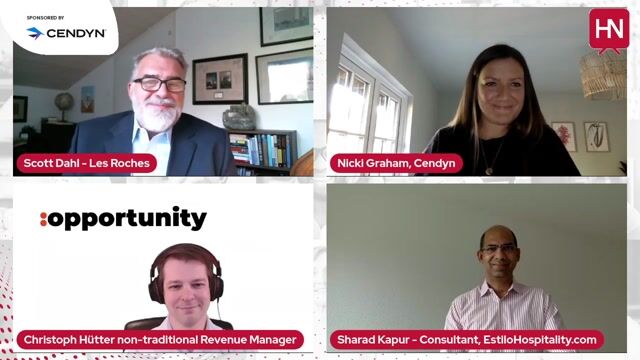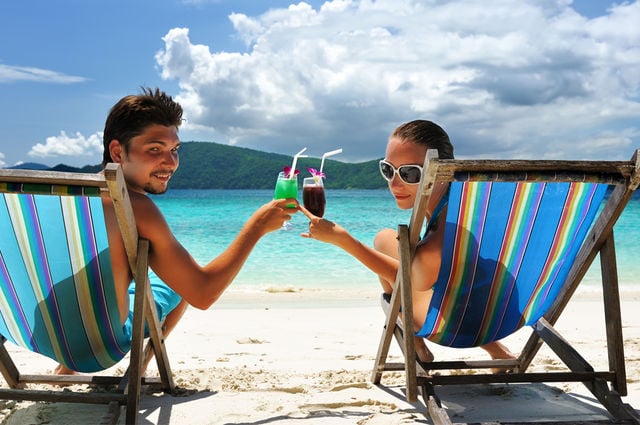How to manage revenue in a pent-up demand era?
20 experts shared their view
Considering the unprecedented global travel disruption and performance declines we've endured; hoteliers finally have something to look forward to. The world has spent the last 18 months dreaming about travel, but not actually going anywhere. Increasing vaccination rates combined with relaxed travel restrictions are bringing travel back… with a vengeance. Most agree that the worst is behind us.
But so far, this pent-up demand or "revenge" travel is different. Driven almost entirely by domestic leisure demand, the patterns have changed. Some premium locations are already exceeding 2019 pre-COVID levels, while hotels just a few blocks away are still struggling. Hotels that targeted the corporate, international, or group segments are reinventing themselves, with mixed success.
Considering the unique nature of the recovery, what should hoteliers do to optimize and manage COVID's pent-up demand?

This World Panel Viewpoint is sponsored by Cendyn™
More information
Reinvention is the “Mother of Success” in the post-COVID era. If you are a corporate hotel, these corporate groups and managed corporate travelers are not coming back anytime soon. According to Deloitte, U.S. business travel is expected to grow much slower than anticipated and will reach 65%-80% of 2019 levels only in Q4 2022. Similar is the situation in Europe and APAC.
In the same time, due to ongoing uncertainty and ever-changing government travel restrictions, long-haul and overseas travelers are not coming back at least until the summer of 2022.
So, what should hoteliers do?
Re-evaluate your property's market segments:
- Corporate groups and transient corporate travel are out, social groups, unmanaged business and leisure transient travel are in. A few years back, when visiting with a client - a big box conference hotel, I asked why the 100,000 square feet of meeting/event space were empty over the weekend and where were the weddings and other social events. “Too much work” was the answer. Well, if you want to stay in business, corporate group hotels should reinvent themselves and become social event hotels in the next 18 months or so.
- In the post-pandemic world, hoteliers must “own” their short-haul and drive-from feeder markets for both leisure and unmanaged business travelers, and “delegate” to the intermediaries only the long-haul and the few foreign feeder markets still in play. Effective practices include employing solid revenue management and RMS technology, enforcing strict rate parity, implementing CRM programs and technology to engage and retain repeat customers, and investing in digital marketing initiatives for those local markets.
Utilize to the fullest the property's spaces:
- Create co-working spaces: Similar to Roger Smith Hotel in New York City, create work-from-hotel spaces for out-of-towners, digital nomads and local entrepreneurs who do not want to be tied down by office leases. Create Room and Office daily, weekly and monthly packages and promotions, including WiFi, coffee, bottled water, snacks and catered lunch.
- Utilize unused conference/function space: With the corporate group and netting's markets ramping up with a slower pace than leisure travel, utilize unused fu cation space to offer yoga classes, wellness programs, cooking classes, new book readings and author signing events, neighborhood craft shows, etc.
Focus on generating ancillary revenues:
How many hotels can boast that 35% of their revenue comes from the sale of ancillary products like it is for a typical airline? A hotel has significantly greater ancillary revenue opportunities than the airlines, yet very few hotels take full advantage of these bottom line enhancing ancillary products. Increasing ancillary revenues requires a) the implementation of merchandizing strategy and culture at the property/hotel company, b) incentivizing and training your staff, and c) adopting technology solutions to automate as many of the internal processes as possible.
- Core Hotel Ancillary Products: Upselling, upgrading and cross-selling the property's core amenities: better rooms, suites, spa services, F&B, early check-ins, late check-outs, etc. Implement automated solutions like ROOMDEX and Oracle's Nor1 to increase ancillary revenues and reduce labor cost.
- Non-Core Hotel Ancillary Products: I see two great merchandizing opportunities: a) Sale of guest stay-enhancing ancillary products like champagne for special occasions, romantic stay decorations, chocolate covered strawberries, ice cream, bouquet of flowers, breakfast in bed, etc., and b) Sale - a la carte or as part of packages - of city passes and tickets to local museums, theme parks, sporting events, concerts and performances, art exhibitions and other attractions, as well as sightseeing tours to places of interest

This World Panel Viewpoint is sponsored by Cendyn™
More information



